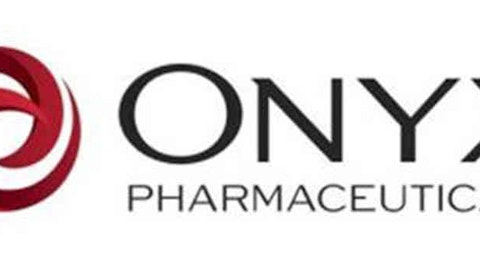Pharma companies have been paying off generic drug makers so that cheap generic drugs do not enter the market. In a settlement case involving AbbVie Inc (NYSE:ABBV), the U.S. Supreme Court dealt a blow to this practice, allowing the FTC to take action against these deals. The judgment is seen as a “significant victory for the consumers and free trade.” However, the market remains relatively unaffected.
The case
The question for the Federal Trade Commission v. Actavis (NYSE:ACT), No.12-416, was about the legality of payments made by Solvay Pharmaceuticals (now owned by AbbVie Inc (NYSE:ABBV)) to Actavis Inc (NYSE:ACT), earlier known as Watson Pharmaceuticals. The FTC contended that this deal was a pay-for-delay payment that unlawfully restricted Actavis Inc (NYSE:ACT) from producing a generic version of AndroGel, a testosterone gel brand owned by Solvay.
While generic drugs cost 15% as much as the original product, they lead to losses of 90% of market share for the brand-name drug maker. During the hearing, the justices noted that while a brand-name maker may lose much more than what a generic maker would make, such payments seem to allow a generic producer to make more money by staying out of the market than by producing the drug.
While the Drug Price Competition and Patent Term Restoration Act of 1984 encourages generic producers to challenge patents of branded drugs, reverse payments, as the pay-for-delay payments are called, result from a loophole in the act.
Fighting for high stakes
The stakes are very high in brand-name drugs. In 2011, sales of pharmaceutical products totaled $320 billion. However, total prescriptions for branded drugs were only 18%, but accounted for 73% of the total amount spent by consumers.
Of particular mention is the case of Enbrel, the rheumatoid drug of Amgen, Inc. (NASDAQ:AMGN). Enbrel is a genetically engineered anti-TNF compound, the same class as AbbVie’s Humira, and contributed $2.7 billion to the company’s revenue in Q4 2012. However, a recent study reported in the New England Journal of Medicine showed that Enbrel was no more effective in treating rheumatoid arthritis than a cocktail of three generic drugs. While Enbrel costs $25,000 a year, the generic alternative costs only $1,000.
Why you shouldn’t need to worry
The Supreme Court decision opened the way for antitrust scrutiny of pay-for-delay agreements. This could mean that brand name companies would now be wary of using reverse payments or any other strategy for delaying generic versions.
In addition, developing nations are also gearing up to challenge patents that do not appear to be genuine or are against their government’s policy of providing cheap medicines to the population. The recent case of Pfizer Inc. (NYSE:PFE) losing a patent lawsuit in India is a classic example. Although the patent revocation was sent back to the patent office for reconsideration, it is a harbinger of tougher times in coming days.
However, AbbVie Inc (NYSE:ABBV) and Amgen, Inc. (NASDAQ:AMGN) have a range of products in the market and continue to launch new products. On June 13, 2013, the FDA approved a new indication (denosumab) for Amgen, Inc. (NASDAQ:AMGN)’s Xgeva for treatment of patients with giant cell bone tumors. A few days earlier, the company reported top-line Phase III results for trebananib, its candidate for treatment of ovarian cancer, and positive results from Phase III trials for talimogene laherparepvec for metastatic cancer.
AbbVie Inc (NYSE:ABBV) has more drugs in the market than one can count, and an equally strong pipeline of candidates for treatment of hepatitis C virus, rheumatoid arthritis, psoriasis, uterine fibroids, breast and other cancers. AbbVie Inc (NYSE:ABBV) may also develop an oral HCV treatment with its interferon-free cocktail of three drugs.
Both AbbVie Inc (NYSE:ABBV) and Amgen, Inc. (NASDAQ:AMGN) are dividend-paying companies – Abbvie yields 3.71% and Amgen, Inc. (NASDAQ:AMGN) 1.88%, which makes them suitable for inclusion in an income portfolio. Things may however change if the government goes soft on QE. If that happens, interest rates are likely to go up, and these payouts may not look so attractive then.
A note of caution
On the other side, the benefits from new launches need to be looked at in the backdrop of the nullifying effect of revenue loss from patent expirations.
Both Amgen, Inc. (NASDAQ:AMGN) and Abbvie have lost more than 5% in the last one month, which may lure investors to buy. At the same time, considering that the healthcare sector has had a good run since the last one year, I would suggest playing these two stocks with care, and waiting for a more substantial correction.
The article Do Generic Drugs Drastically Alter Market Dynamics? originally appeared on Fool.com and is written by Kanak Kanti.
Dr.Kanak Kanti De has no position in any stocks mentioned. The Motley Fool has no position in any of the stocks mentioned. Kanak is a member of The Motley Fool Blog Network — entries represent the personal opinion of the blogger and are not formally edited.
Copyright © 1995 – 2013 The Motley Fool, LLC. All rights reserved. The Motley Fool has a disclosure policy.



